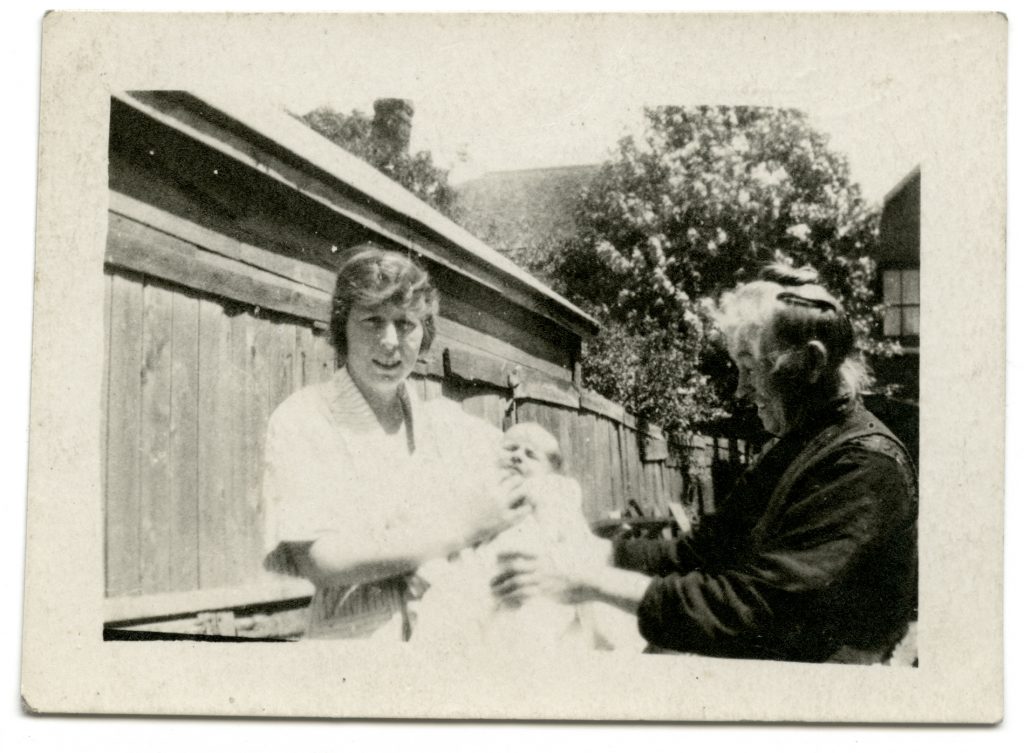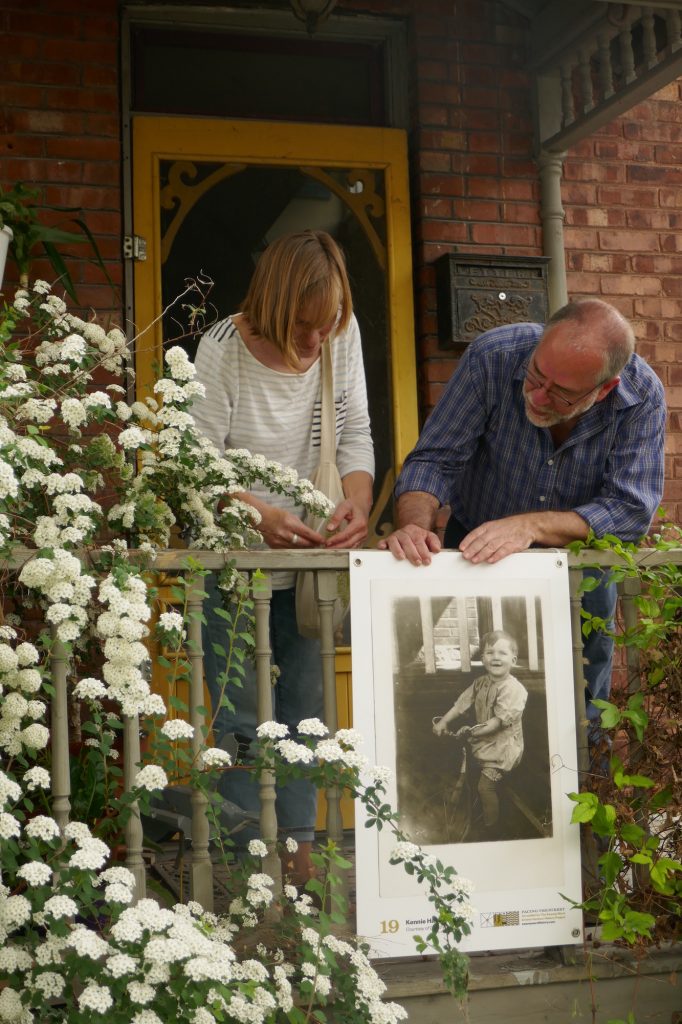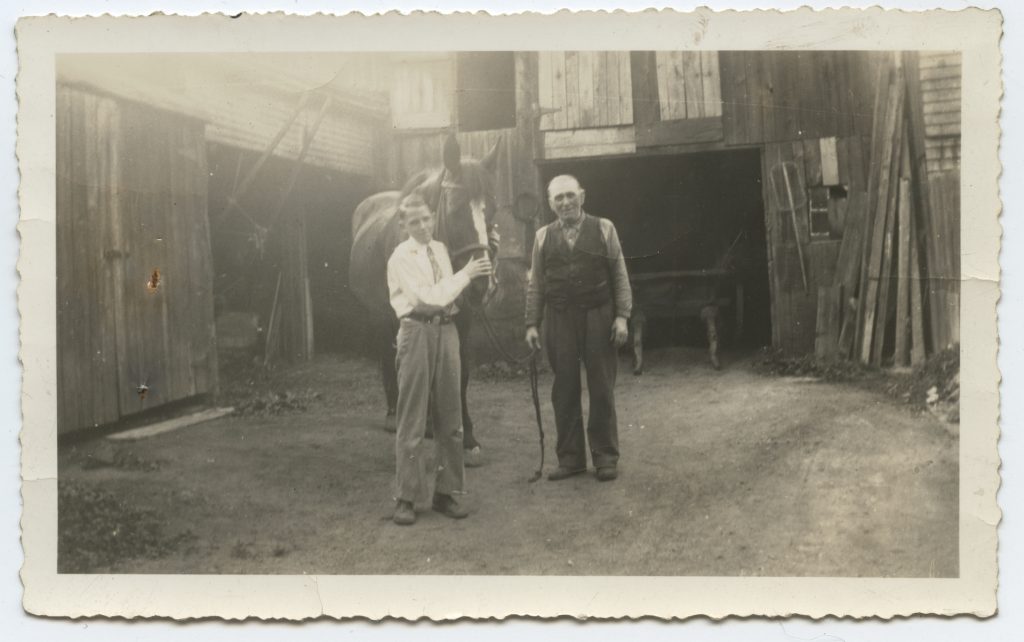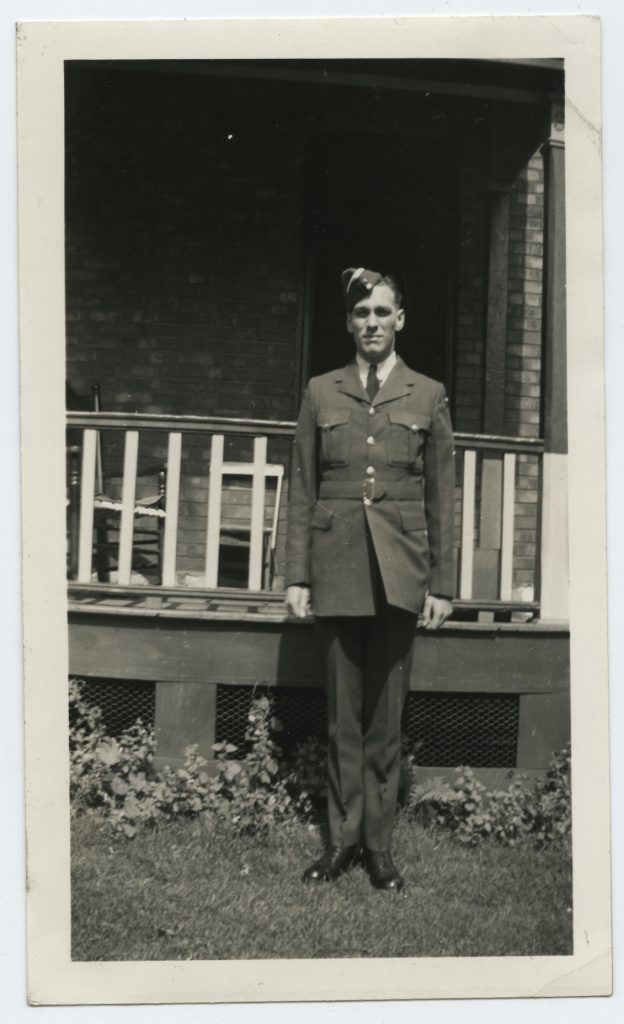69 Ordnance Street
Joseph Hackett and his wife Jane lived at the northwest corner of Bagot and Ordnance Streets. Joe was a carter and labourer — he would empty coal boats by hand at Swift’s and Anglin’s in the Inner Harbour into “dump carts” with two wheels and then deliver the coal to people’s houses. He kept his two horses out back of the house. In due course, Joe and Jane’s son Bill (b. 1893, known as “Bonnie”) and his wife Ada Moncrieff settled in next door at 69 Ordnance. Their first child, Doug, was born in 1921, and the baby was Bill Junior, born in 1930. Bonnie worked at the post office, and Ada worked at home. Bill Jr. remembers the routine well:
The milkman came to the door; the iceman, we had an icebox, he came to the door with ice; the bread man, he’d come to the door. My father turned over his pay always to my mother…my mom would pay the bread bill, the ice bill and the milk bill. She was a very good cook. Every Saturday she would go to the market and we would bring home chickens which she would have to put over the gas stove to burn off the feathers and cut the head off…they were wrapped with newspaper.
During the Depression, Ada would offer tea in milk bottles to “hobos” coming into town on the railways. But she herself was not rolling in cash:
I don’t think my mother had a new dress all her life. It seemed that she spent all the money on the family, five boys and one girl. My uncle who had the grocery store, John Gordon — his wife would be my father’s sister — they were very generous with us as a family that was struggling.
Johnny Gordon’s contribution took the form of giving his nephews work in his store, located at the northeast corner of Bay and Montreal Streets. Bill certainly didn’t experience this work as unalloyed charity:
My job in the basement was to bag the potatoes. And what would happen is there was trap door and my uncle brought the potaters and vegetables and things from farmers outside the city. They would bring big bags of potatoes and drop them through the trap door. And they didn’t recycle what was already in the basement and they landed on top and course the ones on the bottom would eventually get rotten cause they weren’t recycled around…and they would start to rot and I would have to take a pail of water down and wash them down and keep the good ones. And over in the corner the rats would be watching me. Of course I’d have to throw the odd rotten potato at them to try and scare them off. I hated that job. But I eventually graduated upstairs filling the shelves. My older brother Stu worked there at the meat counter.
Stuart later went on to work in the post office, much to his father’s delight. Herb did too, after serving in the medical corps in Holland during the war; Ken became a fire fighter; and Laura worked for the Ministry of Education. Bill joined the police force and was serving as Chief by the end of his career.
But the family was most proud of, and most haunted, by Doug, who served and died in the Air Force. Doug was too tall to be a pilot, but when World War Two started, that’s the job he wanted. So fresh out of high school he snuck off to Ottawa where a friend was willing to ignore the rules and sign him up. Doug came home on leave in 1942. Bill’s last memory of him is how he insisted on helping his grandfather put on the storm windows just as he was leaving for the train. Doug had served his tour of duty when in 1943 he elected to stay on as a member of the Pathfinders’ squadron. In January 1944, he was shot down over Berlin. The family was notified of his death, but his body wasn’t found until five years later. As Bill remembers:
My mother was never right. I would hear her in the night crying and she was crying… No, my mother was never the same, never. Thank goodness my other brother came back.
The nature of war, of course, is that when it ends the celebration is always mixed with grief. The risks and costs are perhaps what caused the element of almost circus-like joy in the photo of young Bill Hackett selling the Whig Standard on VE Day, May 1945.
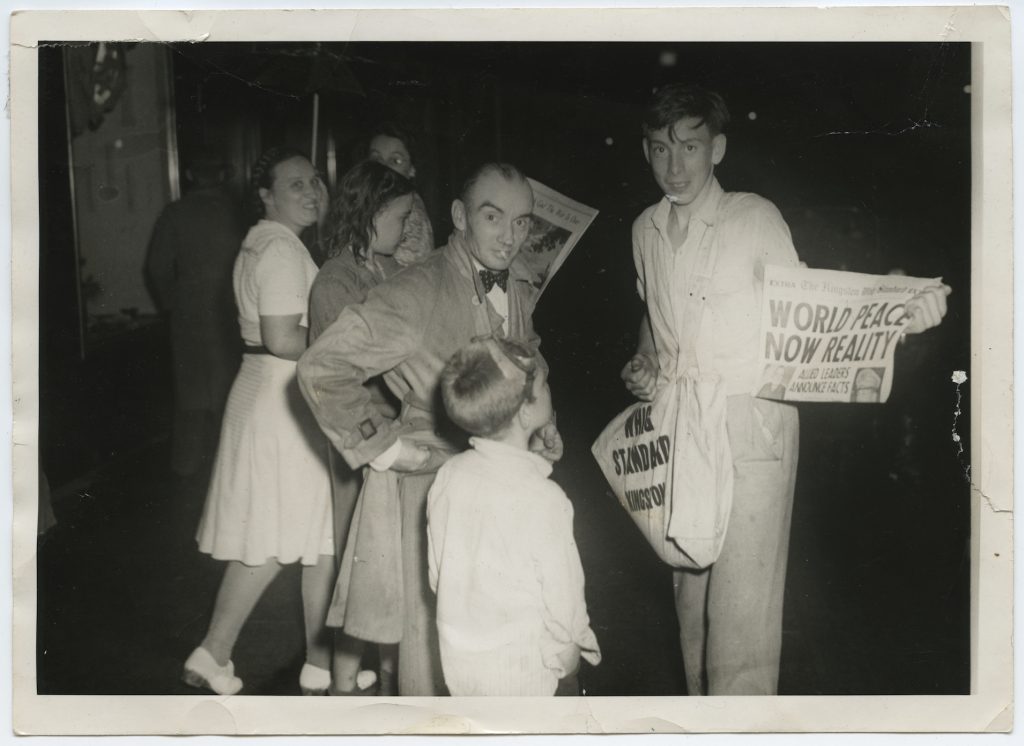
For more information, see this article in the Whig Standard or listen to this episode of Stories of the Swamp Ward.
Warm thanks to David Willis, Laura Hackett’s son, for photos, and to David Willis and Bill Hackett for family stories.


